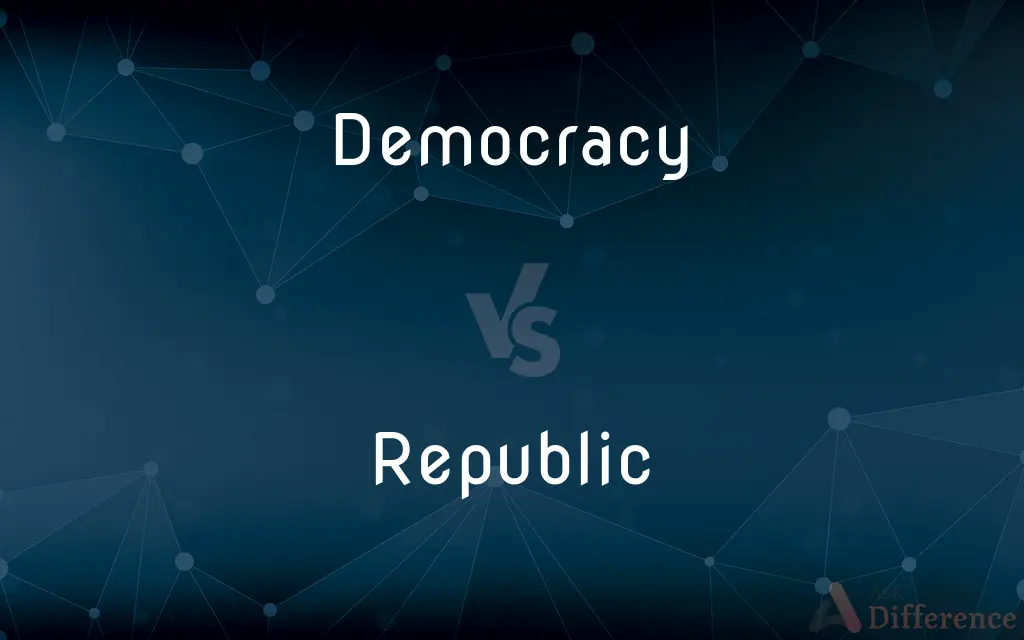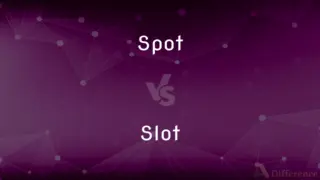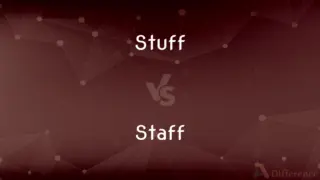Democracy vs. Republic — What's the Difference?
Edited by Tayyaba Rehman — By Fiza Rafique — Updated on November 2, 2023
Democracy emphasizes majority rule, while a republic is founded on laws and elected representatives.

Difference Between Democracy and Republic
Table of Contents
ADVERTISEMENT
Key Differences
Democracy is a system of government where the citizens exercise power by voting. In a pure form, it implies the rule of the majority, with direct participation in the decision-making process. Republics, by contrast, are a form of representative democracy where citizens choose officials to represent them, and those officials are bound by a constitution.
In a democracy, the collective decision of the majority is absolute, which can potentially lead to a tyranny of the majority over minority interests. In a republic, the rule of law protects minority rights against this potential majority rule. Republics often have a constitution or charter that limits the powers of the government and protects certain rights of the individuals.
While democracy is more of a political concept emphasizing the participation of the masses in governance, a republic is a structured political system with set rules and representatives. The republic can be seen as a manifestation of democratic principles structured in such a way as to prevent the possible pitfalls of direct democracy.
Democracy does not necessarily imply a constitution, but a republic does, which provides additional protections. The democratic aspect of a republic comes from the fact that the representatives are elected by the people, allowing for popular participation within the framework of a governed society.
Republics and democracies both aim to represent the will of the people, but they do so in different ways. Democracies focus on direct governance by the people, while republics establish governments that make decisions within the constraints of constitutional law and a system of checks and balances.
ADVERTISEMENT
Comparison Chart
Definition
Rule by the majority of people
Rule by law and elected representatives
Decision-Making
Direct or indirect (voting)
Indirect through representatives
Rights Protection
Majority rule may not protect
Constitutionally protected rights
System Type
Political concept
Structured political system
Law Framework
Not always constitution-based
Constitution or charter-based
Compare with Definitions
Democracy
A state of society characterized by formal equality of rights.
Democracy aims to ensure equal representation for all its citizens.
Republic
A political system with elected representatives.
In our republic, we elect representatives to make laws on our behalf.
Democracy
Governance based on the majority's decisions.
The new policy was a direct result of democracy in action.
Republic
A state in which power rests with the body of citizens.
The republic was founded on principles of freedom and equality.
Democracy
A system where the population exercises power through voting.
In a democracy, voting is a vital right and responsibility.
Republic
A country with an elected or nominated president.
The president of the republic addressed the nation last evening.
Democracy
A political system with free and fair elections.
The cornerstone of democracy is the free election process.
Republic
A political order with supreme power held by the people.
The republic was established to safeguard the people's will.
Democracy
A system in which power is vested in the people.
Democracy thrives on the active participation of its people.
Republic
A nation governed by laws and not by individual people.
The republic stands strong in its commitment to the rule of law.
Democracy
Democracy (Greek: δημοκρατία, dēmokratiā, from dēmos 'people' and kratos 'rule') refers to a form of government in which the people either have the authority to choose their governing legislators, or the authority to decide on legislation. Who is considered part of the people and how authority is shared among or delegated by the people has changed over time and at different speeds in different countries, but more and more of the inhabitants of countries have generally been included.
Republic
A republic (Latin: res publica, meaning "public affair") is a form of government in which "power is held by the people and their elected representatives". In republics, the country is considered a "public matter", not the private concern or property of the rulers.
Democracy
Government by the people, exercised either directly or through elected representatives.
Republic
A state in which supreme power is held by the people and their elected representatives, and which has an elected or nominated president rather than a monarch.
Democracy
A political or social unit that has such a government.
Republic
A political order whose head of state is not a monarch and in modern times is usually a president.
Democracy
The common people, considered as the primary source of political power.
Republic
A nation that has such a political order.
Democracy
Majority rule.
Republic
A political order in which the supreme power lies in a body of citizens who are entitled to vote for officers and representatives responsible to them.
Democracy
The principles of social equality and respect for the individual within a community.
Republic
A nation that has such a political order.
Democracy
(uncountable) Rule by the people, especially as a form of government; either directly or through elected representatives (representative democracy).
Republic
Often Republic A specific republican government of a nation
The Fourth Republic of France.
Democracy
A government under the direct or representative rule of the people of its jurisdiction.
Republic
An autonomous or partially autonomous political and territorial unit belonging to a sovereign federation.
Democracy
(countable) A state with a democratic system of government.
Republic
A group of people working as equals in the same sphere or field
The republic of letters.
Democracy
(uncountable) Belief in political freedom and equality; the "spirit of democracy".
Republic
A state where sovereignty rests with the people or their representatives, rather than with a monarch or emperor; a country with no monarchy.
The United States is a republic; the United Kingdom of Great Britain and Northern Ireland is a constitutional monarchy.
Democracy
Government by the people; a form of government in which the supreme power is retained and directly exercised by the people.
Republic
(archaic) A state, which may or may not be a monarchy, in which the executive and legislative branches of government are separate.
Democracy
Government by popular representation; a form of government in which the supreme power is retained by the people, but is indirectly exercised through a system of representation and delegated authority periodically renewed; a constitutional representative government; a republic.
Republic
One of the subdivisions constituting Russia. See oblast.
The Republic of Udmurtia is west of the Permian Oblast.
Democracy
Collectively, the people, regarded as the source of government.
Republic
Common weal.
Democracy
The principles and policy of the Democratic party, so called.
Republic
A state in which the sovereign power resides in the whole body of the people, and is exercised by representatives elected by them; a commonwealth. Cf. Democracy, 2.
Democracy
The political orientation of those who favor government by the people or by their elected representatives
Republic
A political system in which the supreme power lies in a body of citizens who can elect people to represent them
Democracy
A political system in which the supreme power lies in a body of citizens who can elect people to represent them
Republic
A form of government whose head of state is not a monarch;
The head of state in a republic is usually a president
Democracy
The doctrine that the numerical majority of an organized group can make decisions binding on the whole group
Common Curiosities
What is a democracy?
A democracy is a system of government in which power is vested in the people, who rule either directly or through freely elected representatives.
Can a republic have a monarch?
Typically, republics do not have monarchs, as they are characterized by elected or nominated presidents.
Is the United States a democracy or a republic?
The United States is a democratic republic, as it incorporates elements of both democracy and republicanism.
What is a republic?
A republic is a form of government in which the country is considered a "public matter" with officials elected by the citizens and bound by a constitution.
What’s the main advantage of a republic over a democracy?
The main advantage of a republic is the protection of individual rights against majority rule through a constitution.
How do democracies protect minority rights?
In democracies, minority rights can be protected by laws and often by constitutions, as in the case of constitutional democracies.
What is direct democracy?
Direct democracy is where citizens have direct participation in the decision-making process, often through referendums.
How do citizens participate in a democracy?
Citizens participate in a democracy through voting, public debate, protests, and other forms of political expression.
Are all democracies also republics?
Not all democracies are republics, as some may not have a constitution or elected representatives, like in direct democracies.
What's the difference between a constitutional republic and a democratic republic?
A constitutional republic emphasizes the rule of law through a constitution, while a democratic republic emphasizes the role of the people in choosing representatives.
How does a representative democracy differ from a republic?
Representative democracy is a broader term that can include republics as a specific form, where representatives are bound by constitutional law.
How are laws made in a republic?
In a republic, laws are made by elected representatives who must adhere to a constitutional framework.
Do all republics have a constitution?
Most republics have a constitution, which outlines the system of government and protects citizen's rights.
Are there any pure democracies today?
Pure democracies, where all decisions are made directly by the people, are rare, as most modern nations are representative democracies or republics.
Can a republic be undemocratic?
A republic can be undemocratic if the representatives do not accurately represent the people's will or if the elections are not free and fair.
Share Your Discovery

Previous Comparison
Spot vs. Slot
Next Comparison
Stuff vs. StaffAuthor Spotlight
Written by
Fiza RafiqueFiza Rafique is a skilled content writer at AskDifference.com, where she meticulously refines and enhances written pieces. Drawing from her vast editorial expertise, Fiza ensures clarity, accuracy, and precision in every article. Passionate about language, she continually seeks to elevate the quality of content for readers worldwide.
Edited by
Tayyaba RehmanTayyaba Rehman is a distinguished writer, currently serving as a primary contributor to askdifference.com. As a researcher in semantics and etymology, Tayyaba's passion for the complexity of languages and their distinctions has found a perfect home on the platform. Tayyaba delves into the intricacies of language, distinguishing between commonly confused words and phrases, thereby providing clarity for readers worldwide.














































